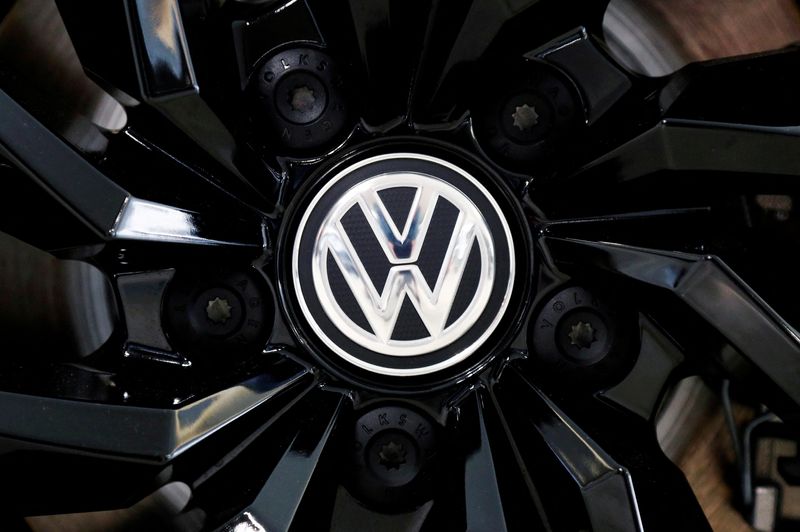BERLIN (Reuters) -Volkswagen and Italy's Enel (BIT:ENEI) have formed a joint venture to build 3,000 high-speed charging points across Italy for electric vehicles (EVs), investing 100 million euros ($105.38 million) each, Volkswagen (ETR:VOWG_p) said on Tuesday.
The charging points will be accessible to drivers of cars made by all manufacturers at 500 locations by the end of 2023, and will have a capacity of up to 350 kW.
By the end of 2022, the carmaker and its partners will have installed 4,300 of a planned 18,000 fast-charging points in Europe, 3,700 of a planned 10,000 in the United States and 8,000 of a planned 17,000 in China.
That comes to 16,000 fast-charging stations globally, around a third of its goal of 45,000 by 2025.
Volkswagen operates partnerships in Europe with BP (NYSE:BP) and Spain's Iberdrola (OTC:IBDRY) and is a shareholder in fast-charging venture Ionity with rival carmakers BMW, Mercedes-Benz, Ford and Hyundai.
By ensuring there are enough charging points - and enough power - for EVs, Europe's biggest carmaker hopes to convince drivers worried about battery ranges that they can ditch their fossil fuel cars for good.
Europe requires at least 3.4 million charging points by 2030, up from an estimated 375,000 available at the end of 2021, according to a McKinsey study for the European Automobile Manufacturers Association.
Renewable electricity must also be distributed across the charging grid at convenient times, coming to a cumulative cost of around 240 billion euros, according to the study.
"The main challenge is making the energy available when it is needed," Volkswagen board member Thomas Schmall said on Tuesday's press call. "Energy storage will play a key role."

Volkswagen will also roll out bidirectional charging, where cars can send energy from their batteries back into the grid, across most of its cars by mid-next year, Schmall added.
($1 = 0.9489 euros)